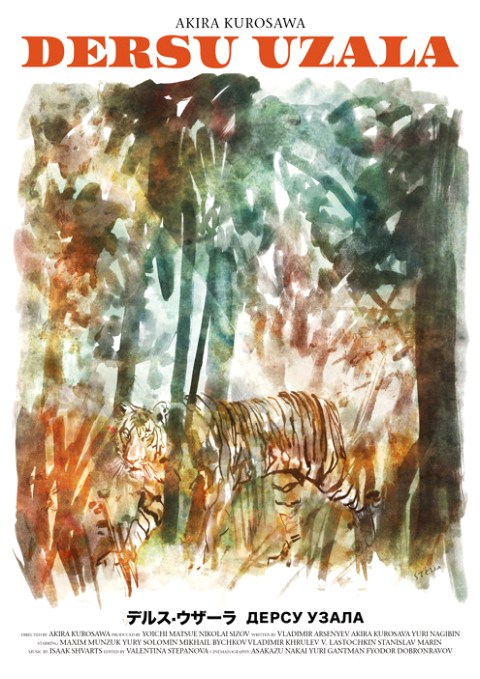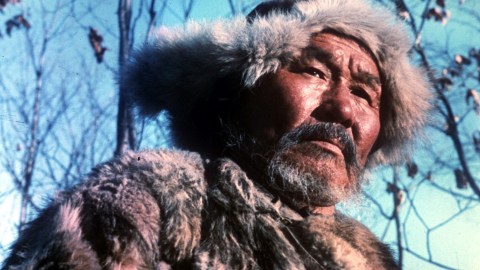17. 4. – 19. 4. 2026
Dersu Uzala

 Original title: Дерсу Узала
Original title: Дерсу УзалаDirector: Akira Kurosawa
Production: 1975, USSR / Japan
Length: 137 min.
Screened:
KRRR! 2012: 70mm 2.2:1, Colours partly faded, MG, Spoken language: Russian, Subtitles: CzechAnnotation for KRRR! 2012
The only film by Akira Kurosawa shot outside his native Japan and the only film he ever shot in 70mm format. The film Dersu Uzala (1975) occupies an extraordinary place in the director's work not only due to the aforementioned firsts. Thanks to a friendly offer from the Soviet studio Mosfilm and after his recovery from an unsuccessful suicide attempt, Akira Kurosawa's career did not fade away, and the famous Japanese director overcame a personal crisis through this film.
Akira Kurosawa and other established Japanese directors found themselves in an unenviable situation in the 1970s. Both worldwide and in Japan, cinema attendance was declining, and Japanese film studios were limiting production, which in turn strengthened the independent scene. Kurosawa had difficulty finding funding for his projects, and although he was internationally recognized and famous, paradoxically he faced failures and financial debacles on the domestic scene. After the fiasco of the film Dodeska den (1970), which was the culmination of Kurosawa's tendency towards a pessimistic view of the world, the frustrated filmmaker even attempted to take his own life.
After a difficult period, the crucial impetus came in 1973 when he received an offer from the Soviet studio Mosfilm, which offered Akira Kurosawa financial support and freedom in choosing his subject. Already during his early years in film, Kurosawa was intrigued by autobiographical notes from the beginning of the 20th century, written by the Russian explorer Vladimir Arsenyev, who described his research expeditions to the Far East. As soon as he received the offer from Mosfilm, he immediately reached for a topic that was not only close to him, but also purely Russian. Akira Kurosawa moved to the Soviet Union for two years, where he had to deal with a fairly radical change in his previous method of filming.
Not only was he filming on foreign locations for the first time, but he was also filming in a language he did not speak and with a mostly Soviet crew. The result was a remarkable film in which Akira Kurosawa showed that he understood the tradition of Russian and European films and was able to adopt it. Dersu Uzala is thus straddled between two cultures not only in terms of production – as a Soviet-Japanese co-production – but also thematically through both main characters (i.e. Dersu Uzala and Vladimir Arsenyev).
The film Dersu Uzala is composed as Vladimir Arsenyev’s memories of his close friend, the native hunter Dersu Uzala. Their budding friendship, in which both represent diametrically different cultures, was a relationship with growing mutual understanding and, above all, with Arsenyev’s consistent effort to listen to and understand nature in the way Dersu could. Nature and its ruthless order form another important thematic framework of the entire film, which is also related to the concept of diegetic time. Although the story takes place over eight years, the film follows the sequence of seasons, thus maintaining the impression of a continuous and natural cycle.
The wide-angle 70mm format was a popular choice for spectacular spectacles, musicals and travelogues. Akira Kurosawa uses the represented subject to oppose the popular genres typical of this format and on the wide seventies screen gives space primarily to the intimate story of two people. So let's immerse ourselves in the then undiscovered corners of the Siberian landscape with the help of long panoramas and let Ders Uzala guide us.